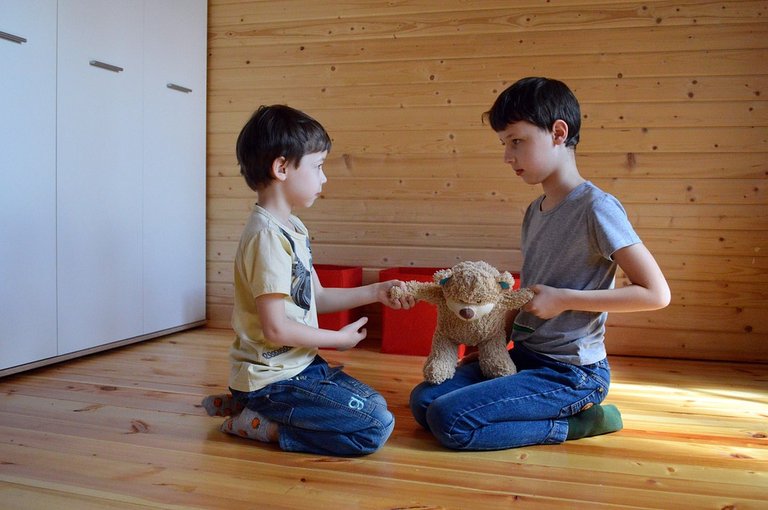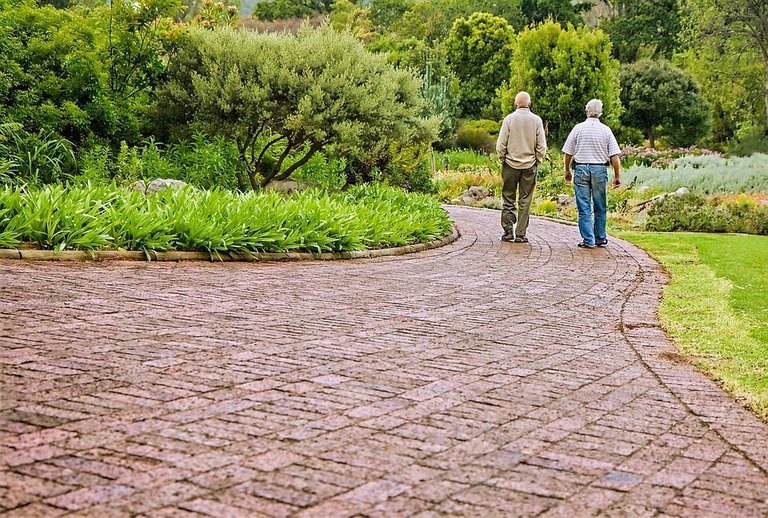
La historia que les quiero contar es sobre Medea de la mitología griega. Conocí la historia de Medea desde que era joven y siempre me sorprendió su astucia y su inteligencia. Pero también había un lado oscuro en ella, una ira y un resentimiento profundo hacia aquellos que la habían herido.
UNA HISTORIA MITICA
Medea era hija del rey de Colquide, pero cuando llegó Jason a su reino en busca del Vellocino de Oro, ella se enamoró de él y ayudó a cumplir su misión. Jason prometió casarse con ella y regresar juntos a Grecia, pero una vez allí, Jason la abandonó por la hija del rey de Corinto.
Medea se sintió traicionada y humillada por Jason. Ella había arriesgado su vida y su posición por él, y él la había dejado por otra mujer. Su resentimiento se convirtió en una ira incontrolable y decidió vengarse. Con su astucia y conocimiento de la magia, logró engañar a la familia de Jason y asesinó a sus hijos y a la hija del rey de Corinto.
La historia de Medea es una advertencia sobre el poder de la ira y el resentimiento. Una vez que alguien es controlado por estos sentimientos, pueden hacer cosas terribles y dañar a aquellos a los que antes amaban. Pero también es una historia sobre la traición y la justicia. Medea buscó vengarse de Jason por haberla traicionado, pero sus acciones fueron terribles y le costaron a ella misma su futuro y su felicidad.
Aun hoy en día, la historia de Medea sigue siendo una advertencia sobre los peligros de la ira y el resentimiento. Recordamos su historia para recordar la importancia de controlar nuestros sentimientos y no dejar que nos controlen.
Tristemente esta historia es un mito, pero el sentimiento es muy real. Como ser humano, he experimentado el resentimiento en mí mismo y también he presenciado su crecimiento en otros. Es como una semilla pequeña, que con el tiempo, si se le da el ambiente adecuado, puede crecer hasta convertirse en un árbol frondoso y dañino.
The story I want to tell you is about Medea from Greek mythology. I knew the story of Medea from the time I was young and was always amazed by her cunning and intelligence. But there was also a dark side to her, a deep anger and resentment towards those who had hurt her.
A MYTHICAL STORY
Medea was the daughter of the king of Colquide, but when Jason came to her kingdom in search of the Golden Fleece, she fell in love with him and helped fulfill his mission. Jason promised to marry her and return to Greece together, but once there, Jason abandoned her for the daughter of the king of Corinth.
Medea felt betrayed and humiliated by Jason. She had risked her life and position for him, and he had left her for another woman. Her resentment turned into uncontrollable anger and she decided to take revenge. With her cunning and knowledge of magic, she managed to deceive Jason's family and murdered his sons and the daughter of the king of Corinth.
The story of Medea is a warning about the power of anger and resentment. Once someone is controlled by these feelings, they can do terrible things and harm those they once loved. But it is also a story about betrayal and justice. Medea sought revenge on Jason for betraying her, but her actions were terrible and cost herself her future and her happiness.
Even today, Medea's story remains a warning about the dangers of anger and resentment. We remember her story to remind us of the importance of controlling our feelings and not letting them control us.
Sadly this story is a myth, but the feeling is very real. As a human being, I have experienced resentment in myself and I have also witnessed it grow in others. It is like a small seed, which over time, if given the right environment, can grow into a lush and damaging tree.

¿PORQUE SENTIMOS RESENTIMIENTO?
Todo comienza con una pequeña ofensa, una situación que nos hace sentir mal, una herida emocional que no se ha curado correctamente. Esa semilla de resentimiento se siembra en nuestro interior y, si no prestamos atención, puede crecer y prosperar.
El resentimiento se alimenta de nuestros pensamientos negativos, de la ira y la frustración acumuladas. A medida que la semilla crece, comenzamos a ver a los demás a través de una lente distorsionada, donde solo percibimos sus acciones negativas y no sus virtudes. Este enfoque negativo nos aleja cada vez más de las personas a las que antes queríamos y nos sumerge en un estado de soledad emocional.
Además, el resentimiento nos hace sentir más impotentes y nos impide ver las soluciones a nuestros problemas. Nos aferramos a nuestro dolor y a nuestro rencor, y nos negamos a perdonar y a dejar ir. Esta negatividad puede llegar a afectar no solo a nuestras relaciones interpersonales, sino también a nuestra salud física y mental.
WHY DO WE FEEL RESENTMENT?
It all starts with a small offense, a situation that makes us feel bad, an emotional wound that has not healed properly. That seed of resentment is planted inside us and, if we don't pay attention, it can grow and thrive.
Resentment feeds on our negative thoughts, accumulated anger and frustration. As the seed grows, we begin to view others through a distorted lens, where we only perceive their negative actions and not their virtues. This negative approach increasingly alienates us from the people we once loved and plunges us into a state of emotional loneliness.
In addition, resentment makes us feel more powerless and prevents us from seeing solutions to our problems. We hold on to our pain and resentment, and refuse to forgive and let go. This negativity can affect not only our interpersonal relationships, but also our physical and mental health.

ASI GESTIONO EL RESENTIMIENTO
Pero, ¿cómo podemos prevenir el crecimiento del resentimiento en nosotros mismos? La clave está en reconocer nuestras emociones y trabajar en ellas antes de que la semilla se haya convertido en un árbol frondoso. Debemos aprender a perdonar, a dejar ir y a aceptar las cosas que no podemos cambiar. Debemos aprender a ser conscientes de nuestros pensamientos y a controlarlos en lugar de dejarlos controlarnos a nosotros.
Como persona que alguna vez he experimentado el peso del resentimiento y estoy propenso a el, puedo decir que perdonar y liberarse de este sentimiento puede ser un camino difícil pero extremadamente gratificante. Aquí están algunos pasos que he encontrado útiles para mí en mi propio proceso de perdón y liberación del resentimiento:
Primero: La primera y más importante parte del proceso es aceptar que tengo resentimiento y reconocer que esto está afectando negativamente mi vida y mi bienestar emocional. Una vez que acepto esto, puedo empezar a trabajar en soltando ese sentimiento.
Segundo: Trato de entender por qué estoy resentido. ¿Es algo que alguien hizo o dijo? ¿Es una situación que no se resolvió de la manera que esperaba? Comprender las raíces de mi resentimiento me ayuda a tener una perspectiva más clara y objetiva.
Tercero: Trato de ponerme en el lugar de la otra persona. Entiendo que todos hacemos errores y que nadie es perfecto. Al tener empatía, puedo ver la situación desde una perspectiva más amplia y comprender mejor las acciones y decisiones de la otra persona.
Cuarto: Una vez que he aceptado, comprendido y tenido empatía, el siguiente paso es perdonar. Este es un proceso continuo y puede tomar tiempo, pero al perdonar, estoy eligiendo soltar el resentimiento y dejar ir ese sentimiento negativo.
Quinto: Finalmente, trato de aprender de la experiencia y crecer como persona. Me doy cuenta de que el resentimiento es una oportunidad para crecer y mejorar como ser humano, y esto me ayuda a ver la situación de una manera más positiva.
Para concluir quiero decir que el resentimiento es una emoción dañina que puede destruir nuestras relaciones, afectar nuestra salud y hacernos infelices. Pero podemos evitar su crecimiento si prestamos atención a nuestras emociones, aprendemos a perdonar y a controlar nuestros pensamientos. Debemos trabajar en nosotros mismos para cultivar una actitud positiva y una vida plena de amor y compasión hacia nosotros mismos y hacia los demás.
HOW TO MANAGE RESENTMENT
But how can we prevent the growth of resentment in ourselves? The key is to recognize our emotions and work on them before the seed has become a leafy tree. We must learn to forgive, let go and accept the things we cannot change. We must learn to be aware of our thoughts and control them instead of letting them control us.
As a person who has once experienced the weight of resentment and am prone to it, I can say that forgiving and freeing yourself from this feeling can be a difficult but extremely rewarding journey. Here are some steps that I have found helpful to me in my own process of forgiving and releasing resentment:
First: The first and most important part of the process is to accept that I have resentment and acknowledge that this is negatively affecting my life and emotional well-being. Once I accept this, I can begin to work on letting go of that feeling.
Second: I try to understand why I am resentful. Is it something someone did or said? Is it a situation that didn't work out the way I expected? Understanding the roots of my resentment helps me to have a clearer and more objective perspective.
Third: I try to put myself in the other person's shoes. I understand that we all make mistakes and that no one is perfect. By having empathy, I can see the situation from a broader perspective and better understand the other person's actions and decisions.
Fourth: Once I have accepted, understood and empathized, the next step is to forgive. This is an ongoing process and can take time, but by forgiving, I am choosing to let go of resentment and let go of that negative feeling.
Fifth: Finally, I try to learn from the experience and grow as a person. I realize that resentment is an opportunity to grow and improve as a human being, and this helps me to see the situation in a more positive way.
In conclusion I want to say that resentment is a harmful emotion that can destroy our relationships, affect our health and make us unhappy. But we can avoid its growth if we pay attention to our emotions, learn to forgive and control our thoughts. We must work on ourselves to cultivate a positive attitude and a life full of love and compassion towards ourselves and others.
